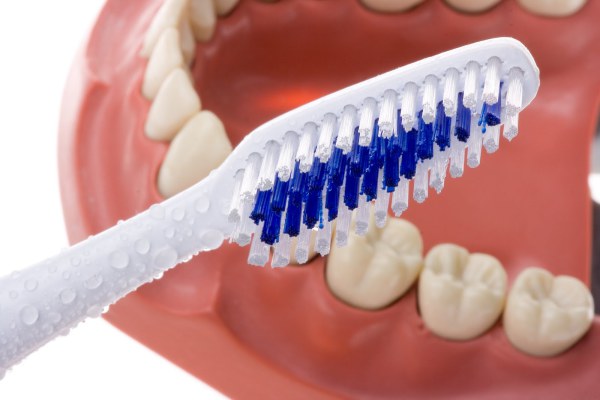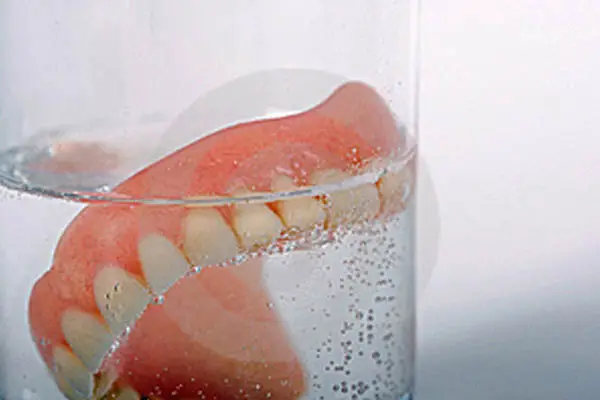Home Remedies For Denture Sores
Home Remedies For Denture Sores ✔️. The simplest therapy for swollen gums due to dentures would be to remove your false teeth and rinse your mouth, paying special attention to your gums, with a warm physiological solution. Salt is essential, as it has antibacterial characteristics, which help to extract and drain any phlegmon formed in your gums due to the use of dentures. The salt in the water helps protect them from any wound or cut.
In addition, you can soak the irritated area directly with aloe vera gel, preferably fresh or directly from the leaves. Leave the gel applied for a few moments; do not eat or drink anything for at least an hour. This application will calm inflammation of the gums and other sore areas, and will help you to treat the irritation and give almost immediate relief.
How can I prevent dentures from hurting me?
Placing new dental implants or dentures can help you feel more confident when smiling, laughing, and eating. Immediately after denture placement, it is common to experience some discomfort, as it may take two to four weeks for dentures to fit your gums well.
What can cause pain?
- It’s perfectly normal for your gums to feel swollen at first, as your dentures fit. However, if you still have problems, talk to your dentist.
- If you feel that your dentures do not fit as well as they should, you may need to change them, as a poorly fitting denture can lead to sore mouths or infections. Minor adjustments can make a big difference in how your dentures fit and how they feel.
- If your dentures are loose, you may feel uncomfortable eating and speaking, as food can get trapped under the dentures and cause your gums to become irritated.
How can this be avoided?
Your dentist will be able to offer you some methods you can try to help ease gum discomfort and make you feel like yourself again.
To help avoid sore mouth while eating, try chewing your food slowly, as this will help your gums fully recover if your dentures are new. You can also consider using a denture adhesive, which helps prevent any food particles from getting under the dentures and causing irritation.
Your dentist will be able to advise you on how to get used to wearing new dentures during the transition period and make sure they are as comfortable as possible.
To soothe your gums after long-term denture wear, try using salt water. Adding a half teaspoon of salt to a half cup of warm water will help heal and ease any pain in your mouth.
Cleaning your dentures daily will help kill bacteria so your dentures continue to feel fresh. It is important to visit your dentist frequently, so that he can check your dentures and the rest of your mouth, and can identify any problems.
Clean dentures
To help prevent damage and keep your denture in tip top shape, it is important to care for it as you would your natural teeth. Following a thorough daily cleaning routine will help ensure that your dentures are in the best possible condition and that you can keep smiling.
If you are suffering from prolonged discomfort, it may be best to consult your dentist.
Tips for patients with dentures
I already explained in another post the problems and limitations of the use of dentures, and today I am going to give you tips to cope with the inconveniences of dentures in the best possible way.
Take note of these tips for patients with dentures !
- The first few days, try to close your mouth and chew carefully, so as not to bite yourself and not overload your gums.
- For the same reason, you should initially chew soft and non-sticky foods gently, gradually moving to eating products of greater consistency.
- Try to remember that chewing should be done on both sides at the same time.
- To treat the wounds caused by friction (generally very painful), you can use soothing and healing mouthwashes, ointments or gels, on which your dentist will advise you.
- If you have severe pain when biting, or wounds appear, go immediately to the dentist’s office, so that they can give you the relevant relief in your prostheses and prescribe, where appropriate, soothing and healing mouthwashes, ointments or gels.
- You should also go to the dentist if you have tolerable discomfort that does not improve or subside in four or five days.
- There are some products (adhesives) that favor the retention and adaptation of the prosthesis in your mouth. Before using them, you should consult with the dentist, but you should know that they are not “miraculous”.
- Avoid, when handling them, that your prostheses fall to the ground, as they can fracture, especially the lower one.
How is the placement and removal of the dentures?
The apparatus complete denture should be placed on your site and always wet, inside the mouth, fingers. Never insert them and bite on them without being properly placed in place, because you can fracture them or injure your gums. After removing them, also with your fingers, wash them and place them in a glass of water.
Denture care and hygiene
- After each meal you should rinse the prostheses and the mouth.
- The prostheses should be cleaned with a special prosthesis brush (available in pharmacies) or a nail brush with nylon bristles, and a little toothpaste or, better, soap, to avoid the formation of tartar and the deposit of stains . Afterwards, rinse them very well with water.

- It is advisable to remove the prosthesis to sleep, so that the mucous membranes rest daily for a few hours. In the case of the lower prosthesis, it is essential, to avoid choking during sleep.
- While you sleep, the prostheses should be kept in a humid environment, preferably in a glass of water, to which you can add disinfectant tablets marketed for this purpose.

Reviews and incidents of dentures
- If a problem arises, do not try to solve it yourself, go to your dentist.
- The gums, over time, undergo modifications and with this there are imbalances in the prostheses that must be corrected by the dentist. Among the adaptive corrections that you will have to carry out from time to time (variable, depending on the case), are the relining, which consists of filling the areas of the prosthesis that have lost contact with the mucosa with resin (plastic), to improve adhesion. For this reason, it is advisable to carry out routine check-ups with the dentist or stomatologist every six months.
- Do not let anyone adapt your prostheses other than your dentist, he is the only one who can do it.
If even following these tips for patients with dentures, you have not been able to adapt to this type of prosthesis or you want greater comfort and convenience, you can do a study to plan a prosthesis on dental implants that help us solve most of the limitations of the dentures .

